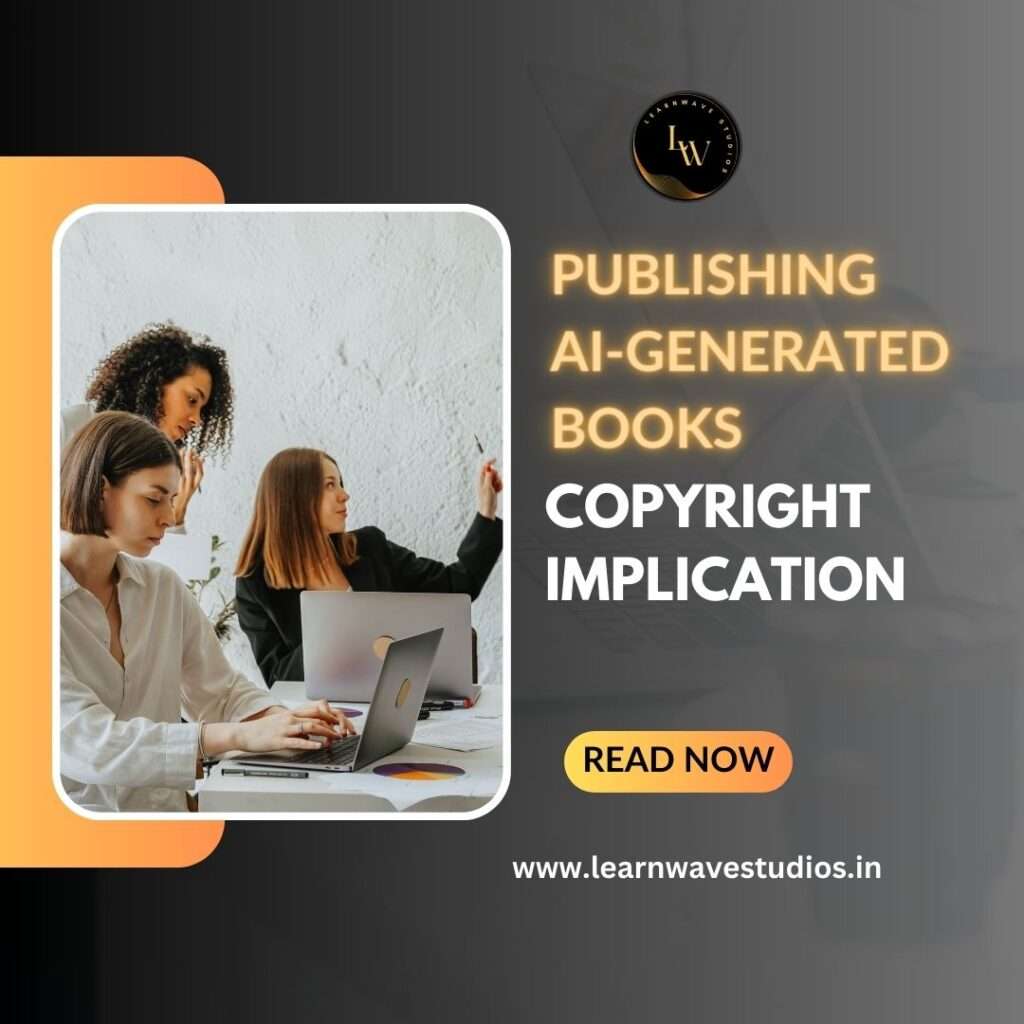Legal Considerations: Publishing AI-Generated Books and Copyright Implications
The emergence of AI technologies, particularly language models such as ChatGPT, has raised intriguing questions regarding the legality of publishing books entirely generated by AI. In this comprehensive exploration, we will delve into the legal landscape surrounding the publication and sale of AI-generated books, shedding light on potential implications related to copyright laws, intellectual property rights, and ethical considerations.

The Genesis of AI-Generated Books
AI language models, exemplified by ChatGPT and similar platforms, possess the remarkable capacity to autonomously generate coherent and contextually relevant text. Leveraging extensive training data, these models can produce entire books, encompassing narrative prose, informational content, and diverse literary forms, blurring the lines between human and machine-generated authorship.
Copyright and Intellectual Property Considerations
Originality and Authorship
A cornerstone of copyright law is the protection of original works authored by human creators. While AI-generated content challenges traditional notions of authorship, the absence of direct human intervention in the creation process can raise complex legal questions regarding the attribution of authorship and ownership rights.
Public Domain and Fair Use
The utilization of existing copyrighted material within AI-generated books may implicate principles of fair use and the public domain. In instances where AI models generate content featuring copyrighted elements, such as excerpts from public domain literature, determining the legal permissibility of such creations hinges on the extent and transformative nature of the AI-generated content.
Legal and Ethical Implications
Moral Rights and Attribution
The concept of moral rights, integral to copyright frameworks in various jurisdictions, pertains to the right of creators to be attributed for their work and the integrity of the work itself. As AI-generated books lack a discernible human author, navigating the intersection of AI creation and moral rights presents a distinctive ethical and legal quandary.
Plagiarism and Unoriginality
Delving into the realm of AI-generated content introduces novel considerations regarding plagiarism and the originality of literary works. While AI models can synthesize diverse information and language patterns, assessing the novelty and independent creative expression within AI-generated books becomes an intricate undertaking.
Marketplace and Publishing Platforms
Distributing AI-Generated Books
The prospect of selling and distributing AI-generated books on platforms such as Amazon Kindle Direct Publishing magnifies the legal intricacies entwined with this emerging form of literary creation.
Terms of Service and Guidelines
Examining the terms of service and content policies of publishing platforms is fundamental, as these provisions may dictate the permissibility of AI-generated content and the potential risks associated with violation of platform-specific regulations.
Ethical and Future Considerations
Transparency and Disclosure
Promoting transparency regarding the AI-generated nature of literary works becomes imperative, uplifting ethical principles and ensuring that readers are cognizant of the technological underpinnings shaping the content they encounter.
Legal Evolution and Technological Progression
As AI technologies continue to advance, the confluence of legal frameworks, ethical norms, and technological innovation necessitates ongoing scrutiny and adaptation to effectively regulate and accommodate AI-generated literary works.
In conclusion, the legal landscape surrounding the publication and sale of AI-generated books is an intricate tapestry crossing realms of copyright law, ethical considerations, and the evolving identity of authorship. This domain necessitates astute navigation of existing legal frameworks, ethical proclivities, and future-oriented dialogues on how best to harmonize the creative potentials of AI with established legal and ethical precepts.
Navigating the evolving dynamics of AI-generated content within the realm of literature presents a fascinating confluence of technology and the law, impelling stakeholders to engage in conscientious discourse to chart the course forward.
Key-points
AI-generated books, legal implications, copyright laws, AI-generated content, publishing AI books, Amazon Kindle Direct Publishing, ethical considerations of AI content.
This meticulously crafted blog post navigates the complex legal and ethical considerations inherent in publishing AI-generated books, offering comprehensive insights .

